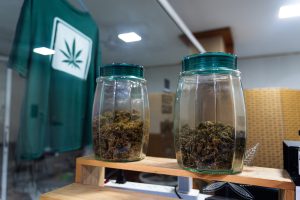Thailand’s new Prime Minister Srettha Thavisin today voiced his opposition to the legalization of marijuana by his predecessor’s administration, but stopped short of calling for a full repeal of the policy.
In an interview with The Standard, a Thai online news portal, Srettha said that he did not agree with the Prayut Chan-o-cha administration’s decision to permit recreational use of marijuana, though he said that his government would continue to allow its medical use.
“Cannabis policy will be medical cannabis,” he said, according to Reuters, confirming earlier statements by government officials. “On recreational use, I do not agree with that.”
According to Reuters, the country’s cannabis industry is projected to be worth up to $1.2 billion over the next few years. Indeed, the economic benefit was the primary reason that the cultivation and use of the plant was legalized in June of last year, with its main proponent, Interior Minister Anutin Charnvirakul, who served as public health minister under Prayut, hoping to promote the plant’s medicinal use and to generate a commercial industry around serving this demand.
The Standard’s interview with Srettha, as described by Reuters, did not make clear whether the Thai government would seek once again to outlaw the recreational use of marijuana, which was among the promises of his Pheu Thai Party ahead of the general election in May.
“We don’t want any more weed. We’re done with it,” Pheu Thai Secretary-General Prasert Chanruangthong said at a campaign event in April. “Pheu Thai is for medicinal marijuana, not recreational. Do you remember brothers and sisters, the party which sold you ganja as a magic pill to cure every illness and a cash crop for whoever grows it to become rich? The only people who got rich from it are the capitalists.”
However, it is clear that Srettha’s Pheu Thai Party has been forced to compromise its stance given that Bhumjaithai is now an important member of its 11-party governing coalition. In April, Anutin maintained that Bhumjaithai, which performed well at the election, increasing its share of seats in the House of Representatives from 51 to 71, would only join a coalition that agrees to maintain its policies on marijuana liberalization.
A curious fact about the Thai case is that legalization was, unlike in many Western countries, driven by conservatives rather than liberals. Indeed, the progressive Move Forward Party, which won the most seats at the May election but was blocked by conservative senators from being able to form government, pledged to relist marijuana as a controlled substance.
Part of the reason for liberal opposition is the rollout of the legal changes to the status of cannabis, which even advocates admit was messy and unplanned. With no law governing the sale and use of the drug, thousands of businesses sprung up nearly overnight, many displaying some variation on the marijuana leaf, stoking panics about runaway rates of recreational use. According to one government estimate, the number of people “addicted” to the drug quadrupled in the six months after its de facto legalization.
Amid the controversy, the Prayut government said that it would draft a Cannabis Law to clarify where, when, and how the plant can be sold and consumed – but it was not completed by the time of the election.
The resulting legal vacuum is to blame for much of the confusion that has resulted from legalization. Now that the election and its protracted aftermath are over, the best-case scenario is that the disagreements within the new Thai governing coalition are channeled into the formulation of a proper Cannabis Law.

































